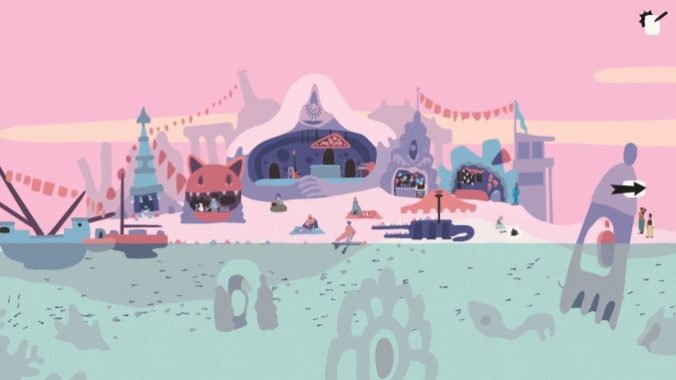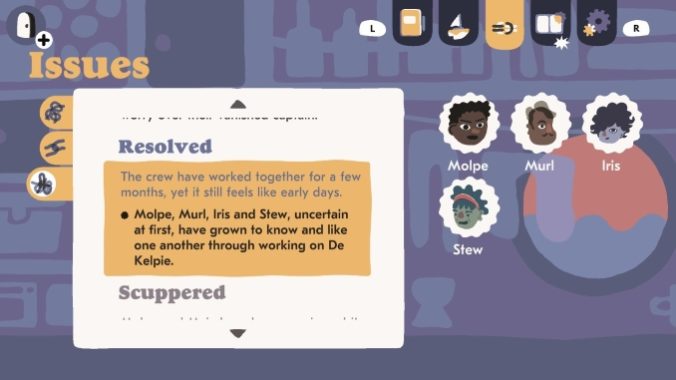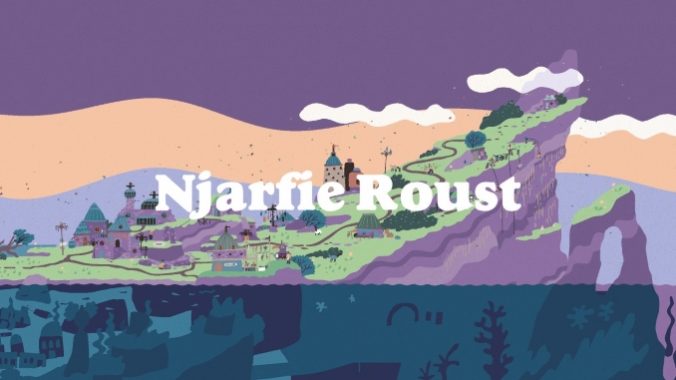Saltsea Chronicles Beautifully Finds A Way Forward

Last weekend, when I played the majority of Saltsea Chronicles, I was talking with a friend about Ursula K. Le Guin, who I recently learned was an anarchist. Or maybe I’d been thinking of her even before our conversation, because all of Saltsea Chronicles, the newest game from studio Die Gute Fabrik, resonates with the most famous line from her anarchist utopian novel The Dispossessed: “Free your mind of the idea of deserving, the idea of earning, and you will begin to be able to think.”
In searching for that quote I found its immediate precedent, which I’d never heard in full: “For we each of us deserve everything, every luxury that was ever piled in the tombs of the dead kings, and we each of us deserve nothing, not a mouthful of bread in hunger. Have we not eaten while another starved? Will you punish us for that? Will you reward us for the virtue of starving while others ate? No man earns punishment, no man earns reward.”
Later on in Saltsea Chronicles you participate in solving a crime. Without getting too specific, the way the crime is solved addresses questions about the efficacy of punishment that you could also find in writing on prison abolition. On another occasion, you encounter a murderer who is in the process of rehabilitation. This moment is an engagement with a philosophy many people believe seriously, which I believe as well: that people have enormous capacity for change and that that capacity must be protected. This framework makes one of your characters very angry, and she rejects that idea, though not completely. Here the game asks itself, and clearly the writers have asked themselves: what would realistically happen if a skeptic, or even a victim, encountered such a system of reparative justice?
Saltsea Chronicles puts such questions front and center throughout its dozen or so hours. You control a crew of characters living in a flooded world which people rebuilt after a catastrophe into a non-hierarchical, collectivist society. When your captain disappears under mysterious circumstances you assemble the crew to try and find her, crossing a dozen islands in the process. You navigate through those islands via point-and-click, getting more information about the world through conversations and observations.
The disappearance of your captain, a remnant of old hierarchies, introduces a unique mechanic of the game. You control the group, not individuals, meaning that every dialogue choice requires you to choose (between two options) who will speak and what they’ll say. Decisions are made together, ideally with everyone’s input, and while you as the player still make most of them, even that’s not always true.

The characters are well-written, from a quiet teenage radio technician to an elderly ship’s cook and sea diver, and I liked them immediately. Their rapport with each other is the basis for another aspect of the game’s relationship mechanics, the “issues” system, where your responses will cause characters to have conflicts with each other. These issues can’t always be resolved, but when they can it’s satisfying to see the characters recommit to each other.
Although you control them all, the characters’ choices are distinct from yours. The crew discuss decisions and sometimes dismiss them because they’re unethical. Sometimes they make the decision together without your input. The studio has really succeeded in making it feel like you’re playing as a group of people. The conceit is so strong that it absorbs everything else into it: working together as equals isn’t just the mechanism for the game, but the philosophy its world and cultures are centered around. Collaboration is a treasured value, and the world building succeeds at communicating that through little interactions, like when a trader gives you a bundle of flowers just because it made one of your characters smile.
There is a ton of content in this game, though I struggle even describing it as such– it feels too precious, and each island feels so necessary to the story that I struggle to believe I only saw slightly over half of them. Me, who never replays games, is already thinking of going through a second time and making different choices.
-

-

-

-

-

-

-

-

-

-

-

-

-

-

-

-

-

-

-

-

-

-

-

-

-

-

-

-

-

-

-

-

-

-

-

-

-

-

-

-









































